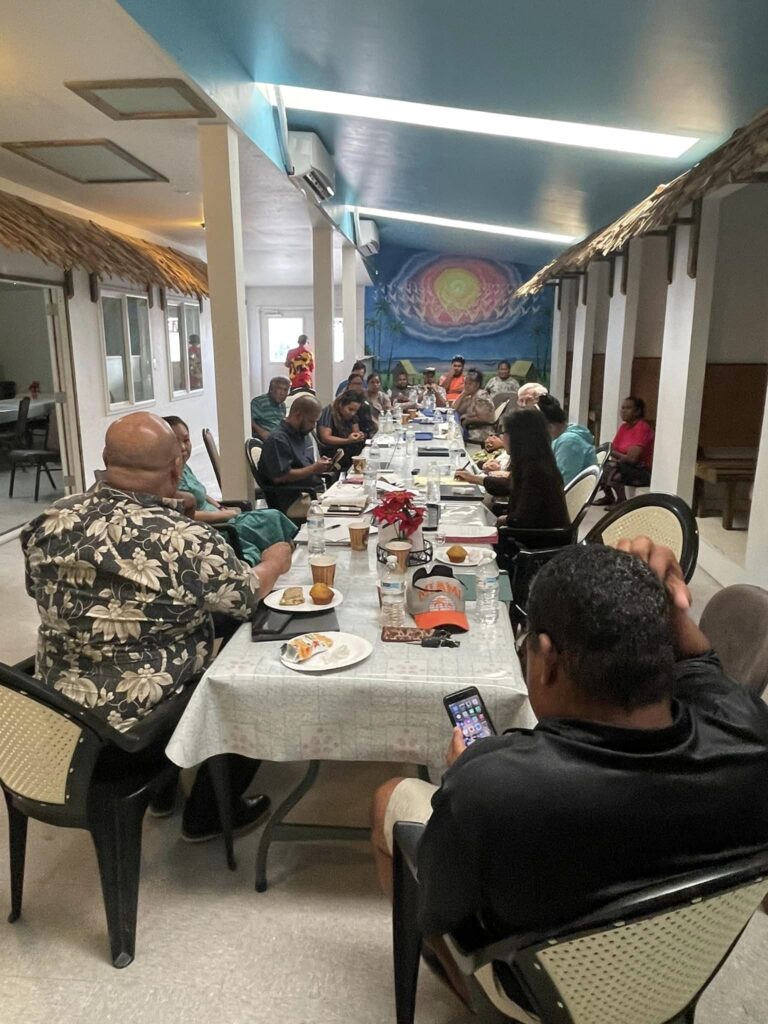Published 12 December 2022
Substantial Progress achieved as Cabinet appoints 3 additional members of the WC Task Force
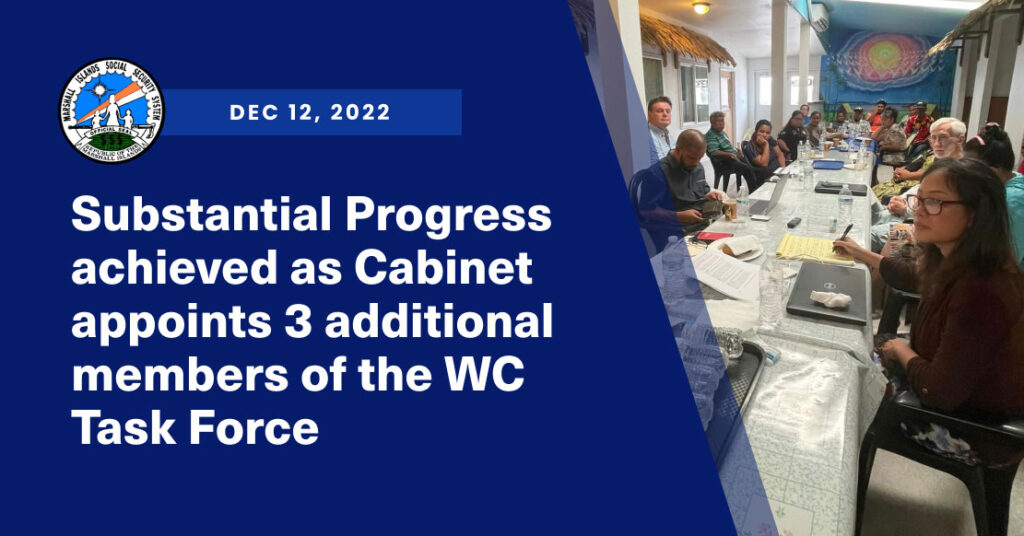
At its meeting on November 16, 2022, the Cabinet has appointed Dr. Robert Maddison (MoHH), Ms. Helen Jetnil-David (Medical Travel Referral) and Mr. Joseph Tibon (Deputy Commissioner PSC) as additional members of the Workers’ Compensation Task Force (WCTF). The 3 new members will join the other 11 members who were originally appointed by the Cabinet in October 2021 to oversee the preparation and pre-implementation phase of the Workers’ Compensation Program. Furthermore, Sen. Kalani Kaneko was also appointed to replace Min. Jack Ading in the WCTF. Min. Ading has been a very active supporter of the Worker’s Compensation program during meetings and has given a lot of inputs in the review of the Handbook and proposed legislative refinements. However, as he has now bigger responsibilities after having been appointed new Minister of Justice, his time with the WCTF has ended. Thus, the need for his replacement.
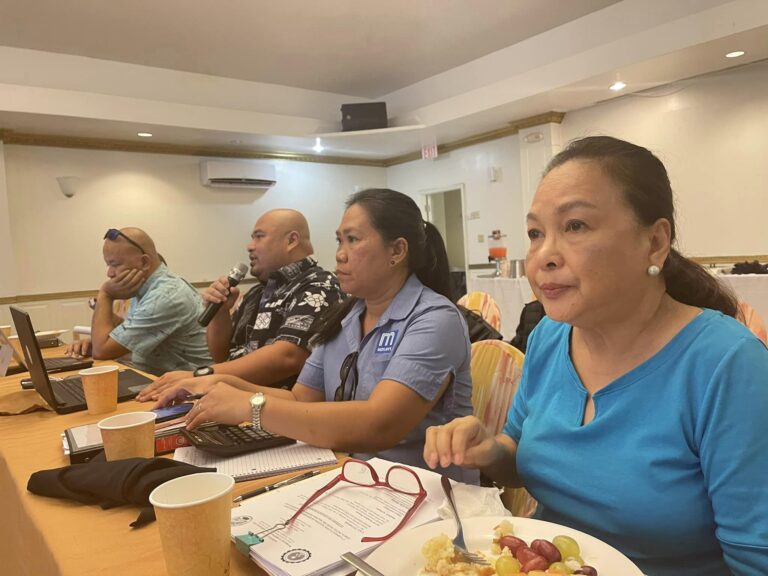
Dr. Maddison is currently the Chief of Staff of Majuro Hospital and a member of the Medical Referral Committee while Ms. Jetnil David is a member of the Health Services Board. Mr. Joseph Tibon is Deputy Commissioner of Public Service Commission (PSC) while Sen. Kaneko is a former MISSA Board Chairman and Minister of Health. Except for Mr. Tibon, the 3 new members of the Task Force have immense experience in hospital operation and in the administration of the Medical Referral Program. Dr. Maddison, Ms. Jetnil-David and Sen. Kaneko will have a very important role in the finalization of the structure of the Workers’ Compensation program and Regulations, more particularly in addressing the difficult challenge of facilitating and financing the overseas treatment of those few but seriously injured employees who cannot be treated in Majuro or Ebeye Hospitals.
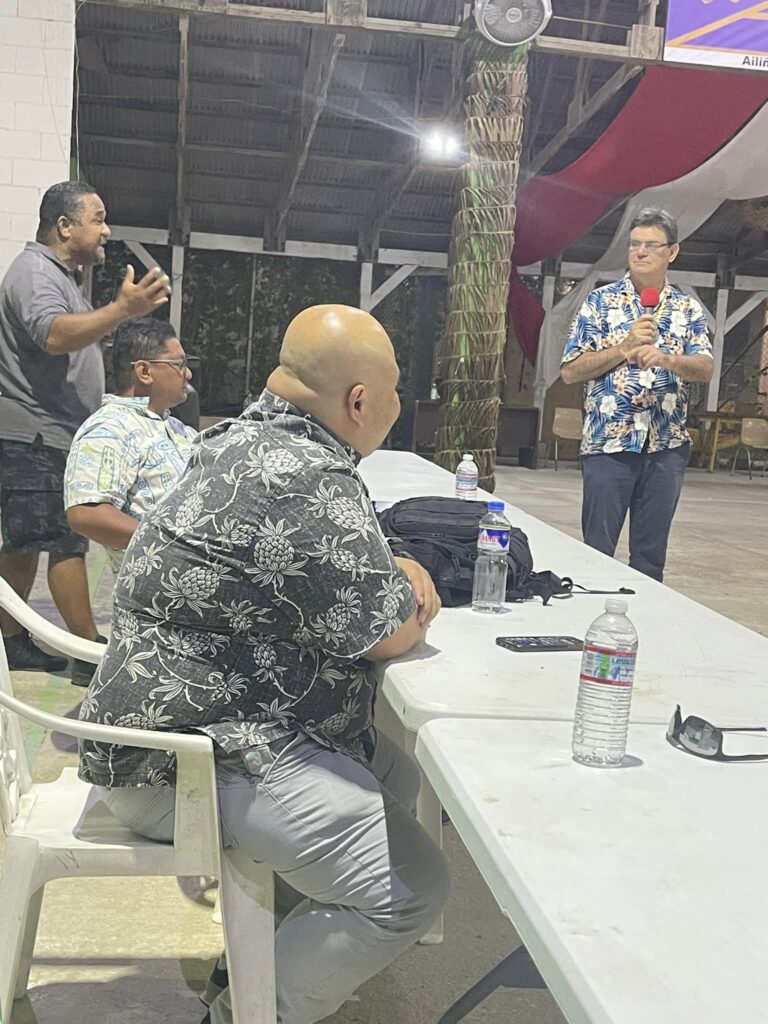
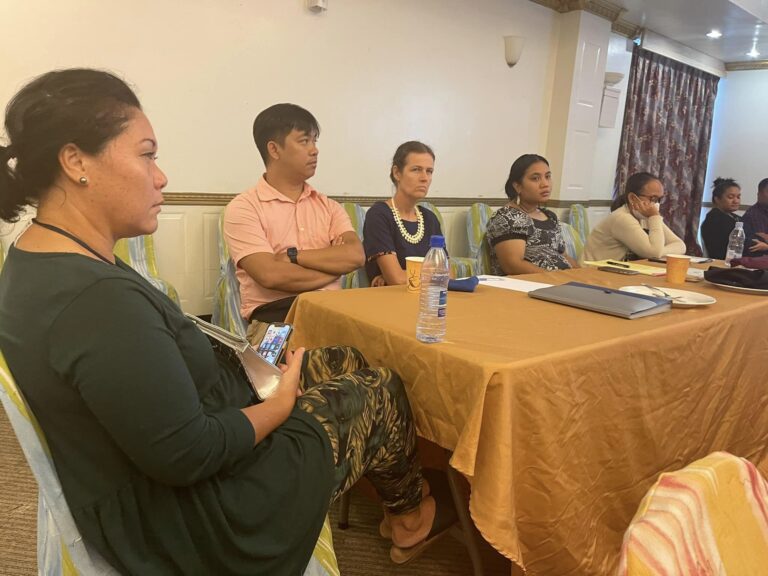
The issue on overseas treatment for injured worker is one of the issues that until now could not be resolved by the WCTF. One of the options being considered is that if the injured worker needing overseas treatment is covered by the Worker’s Compensation program and also qualifies under the medical referral program, the cost of treatment, including airfare, stipend and lost wages, may be shared based on an agreed sharing rates, but with the $40,000 maximum insurance coverage still being in place.
A challenging scenario that the WC Administration may face is if the injured worker is covered by the WCP but is not qualified under the medical referral program. The big question is who will pay the excess, especially if the family of the injured worker cannot afford to pay? Further, the situation will be more complicated if the injured worker needing overseas treatment is not covered by the WCP and does not qualify under the medical referral program.
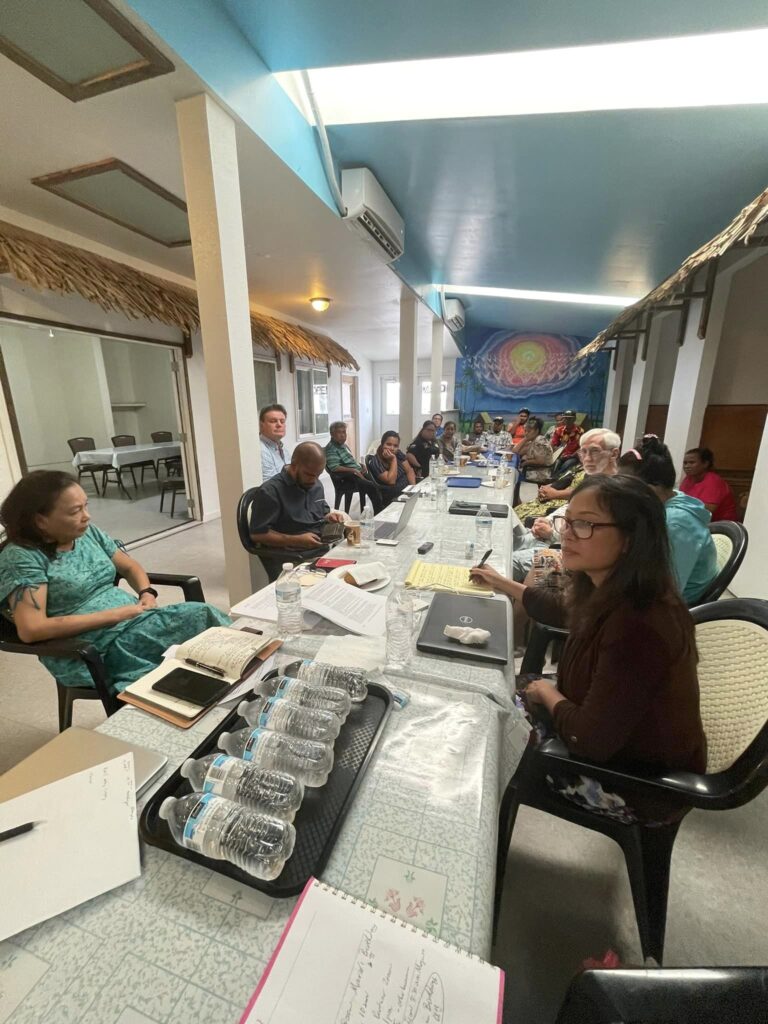
Another unresolved issue is the RMI Government Self-Insurance Fund for Government employees. The appointment of Mr. Tibon will help bridge the gap between the TF and Public Service Commission. Under the WC Law, The Nitijela may establish a fund sufficient to secure compensation in respect of employees of the RMI Government, its agencies and instrumentalities, including any public corporation and state owned enterprises (SOEs). The PSC and PSS Commissioners have decided to have the RMI Government, through the Min. of Finance, to self-insure all of its employees. The decision is being actively supported by the WCTF and Adviser Nippress and be assisted by outcome of the actuarial study being conducted by Deloitte.
From January 26, 2022, the TF has conducted 30 in-house meetings and 13 consultative meetings with the general public and main stakeholders that include Majuro and Ebeye Chambers of Commerce, PSC and all major private sector employers in Majuro, Ebeye and Kwajalein. The cumulative attendees to these meetings have exceeded more than 200 individuals and key company officers. The WCTF’s Adviser has also reached out directly by email and phone to around 50 significant businesses in Majuro and Ebeye/Kwajalein. The feedback and comments that were raised during these meetings are now being reviewed for possible inclusion in the handbook, regulations and proposed amendments.
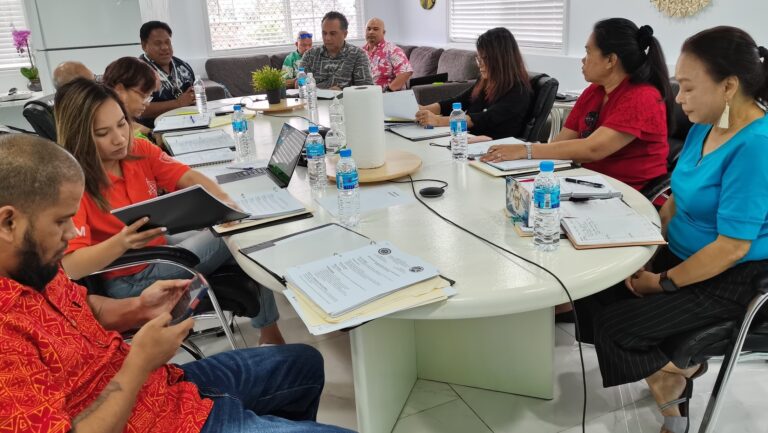
The TF is also being assisted by Mr. Adrian Nippress, an Australian Consultant who was funded by the Australian Government (at no cost to the RMI Government). Mr. Nippress is the person behind the group’s detailed and impressive presentations during the consultative meetings in Majuro and Ebeye. He has also contributed immense inputs during the review of the handbook and preparation of the proposed regulations and amendments to the program. To-date, the WCTF has completed discussing the contents of the WC Handbook and forms that will provide the basic structure of the program. The handbook and forms will also serve as the source and main reference of the WCA Regulations that the group is completing with the assistance of Mr Nippress and Atty. Divine Waiti, the WC legal counsel.
As recommended by Mr. Nippress, the TF has employed the services of Deloitte Australia to perform an actuarial study of the WC program to review the financial viability of the program more particularly the determination of affordable and realistic tariff rates. Earlier, Mr. Nippress and Mr Ave Gimao conducted a tender process and was able to shortlist the interested applicants to 4. After a selection process, it was determined that Deloitte Australia was the ideal candidate. The actuarial report is expected to be completed for consideration by the WCTF in January 2023.
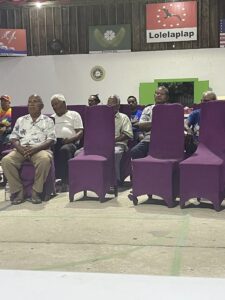
The WCTF has also met with officers of FirstNet and Century Insurance, the insurance principals of Moylan’s Insurance Agency and Marshalls Insurance Agency (MIA), respectively, to discuss their involvement in the workers’ compensation program in the Pacific region and to help Deloitte Australia gather data for their actuarial study.
One very interesting fact that was clarified during these meetings was that the minimum wage in CNMI was $2.15 per hour when the first tariff rate was adapted in 1989 and this has not been changed until now. This is contrary to the information that was gathered earlier by the WCTF that it was $7.50 per hour. The insurance association in CNMI is currently negotiating with the Office of the Insurance Commissioner to increase the tariff by 30% due to inflation based on the consumer price index of 139% (more than doubled from 1989 to 2022). The insurance companies have claimed that with the current economic condition the tariff rates that they are using now are already obsolete.
If the RMI’s $3.00 per hour minimum wage at present is compared with the $2.15 per hour in CNMI in 1989, it will mean that the hope of reducing the premium rates that Moylan’s and MIA are currently using for local companies that have existing WC coverage for their employers will no longer be realized. In fact, it may result to an increase in tariff rates which will be an additional financial burden to employers who will be joining the program.
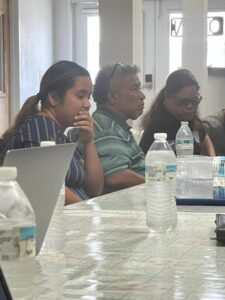
The TF has also come up with proposed amendments to the WC Act. Some of these proposals follow (Note that this is not yet final and still subject to review and changes):
- The following individual may not be covered by this Act:
- A Marshallese worker who is contracted by the US Army Garrison – Kwajalein Atoll (USAG-KA) and covered under Defence Base Act (DBA)of the United States, so long as all the provisions of the DBA is compatible and included in this Chapter;
- A Non-resident consultant who is working in the RMI;
- Non-Resident members of foreign or international diplomatic Corps who are assigned to work in the Marshall Islands, excluding Marshallese employees;
- Non-Resident employees of regional or international organizations;
- Self-employed workers, regardless of nationality, who opted not to be covered by this Act and who have submitted a valid exemption to the Administrator;
- Local students under practicum training and interns;
- Non-Resident or local volunteers, or church missionaries; and
- Small Family-owned shops or businesses whose operation involves the employment of members of the owner’s immediate family, and whose annual cash revenue is not more than $10,000. Provided however, an employer who hires one or more workers who are not his or her immediate family, the non-immediate family workers must be covered.
- The claimant or in case of death of the claimant, the nearest surviving family member(s), may be given an option to choose whether to receive periodic benefit payments or lump-sum, as approved by the Administrator. On a case-by-case basis, however, the Administrator may decide on behalf of the deceased claimant if the decision of the surviving dependent(s) is deemed not practicable or not beneficial to the claimant’s family on a long-term basis;
- If the claimants or surviving family member(s) are not permanent residents of the Marshall Islands, a lump sum payment may be allowed by the Administrator.
- Where the total annual premium for all employees is more than the maximum penalty of $1,000 and the Administrator has sufficient reasons to believe than an employer had intentionally decided to pay the $1,000 fine in order to avoid covering the costs of total annual premium for all employees, the Administrator may seek a Court of competent jurisdiction to penalize such employer up to the amount of the total annual premium, plus $1,000, or by imprisonment of not more than one year, or both.
